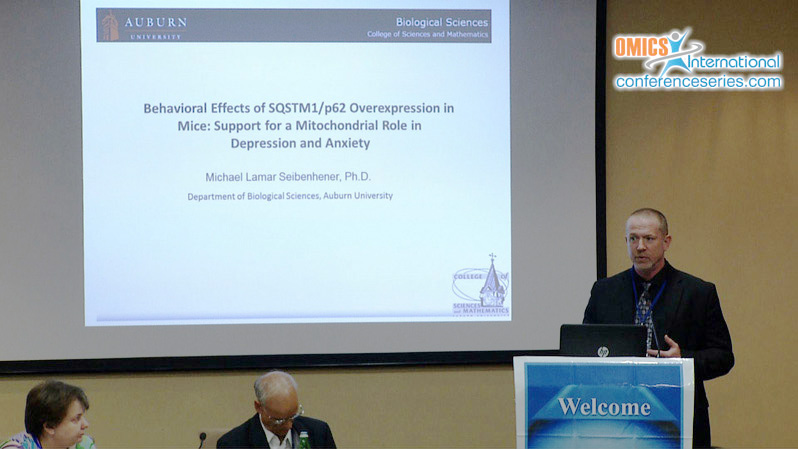Michael Seibenhener
Auburn University, USA
Title: SQSTM1/p62 Overexpression in mice: Support for a mitochondrial role in depression, anxiety and cognition associated with neurodegenerative disease
Biography
Biography: Michael Seibenhener
Abstract
Affective spectrum and anxiety disorders have come to be recognized as the most prevalently diagnosed psychiatric disorders, as well as, being intimately associated with neurodegenerative disease. Among a suite of potential causes, changes in mitochondrial energy metabolism and function have been associated with such disorders. Thus, finding proteins that specifically alter mitochondrial functionality is important to identify molecular targets for drug discovery. The scaffolding and mitophagy related protein Sequestosome1 (SQSTM1/p62) is a component of all known aggresomes associated with multiple neurodegenerative diseases. It has also been recognized as playing a role in both basal mitochondrial activity as well as, degradation of defective mitochondria by mitophagy. We have generated a transgenic mouse overexpressing SQSTM1/p62 specifically in the hippocampal region of the brain and have shown increased mitochondrial energy output and improvement in transcription factor import into the mitochondrial matrix. These elevated levels of mitochondrial functionality correlate directly with discernible improvements in mouse behavior patterns related to affective spectrum and anxiety disorders, as well as, improvements in cognition, spatial learning and long term memory formation. With measurable improvements in biochemical function and behavioral patterns, SQSTM1/p62 appears to be a prime candidate as a protein that improves mitochondrial functionality while also improving behaviors related to anxiety and affective spectrum disorders making it a potential biomarker for mitochondrial related neurodegenerative diseases.


